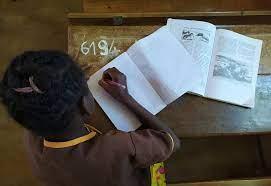
https://www.hi.org/en/news/new-report---ensuring-education-for-children-...
The world we live in is increasingly marked by multiple and simultaneous shocks, recurring and protracted crises, and the impact of climate change.
Globally, some 72 million children are out of school because of emergencies and protracted crises. Of these, at least 17% are children with disabilities.
Ensuring continuity of education is crucial, especially for children and youth with disabilities who are more likely to miss education (and other services) when the system enters an ‘emergency’ mode or transitions from a crisis to a post-crisis situation.
This report "Always Included: Uninterrupted education for children with disabilities before, during, and after a crisis" illustrates how education systems need to become more inclusive for children and youth with disabilities and, at the same time, more resilient to cope with crises and to ensure education in all settings and circumstances.
Children and youth
The report is informed by:
- Testimonies of three children with disabilities, whose education was affected by different crises;
- Case-studies on HI’s inclusive education projects; and
- Advocacy arguments, based on more than 20 interviews with key informants.
The report’s recommendations intend to guide the strategic planning of development and humanitarian donors, governments in low and middle-income countries, and civil society organisations. We exhort them to making inclusive education an essential component of coordinated and coherent responses.
TO GO FURTHER:
- Read the full report in French,
- Read the key messages in French,
- Read the full report in English,
- Read the key messages in English.
https://www.hi.org/en/our-cause
HI is an independent and impartial aid organisation working in situations of poverty and exclusion, conflict and disaster. We work alongside people with disabilities and vulnerable populations, taking action and bearing witness in order to respond to their essential needs, improve their living conditions and promote respect for their dignity and fundamental rights.









